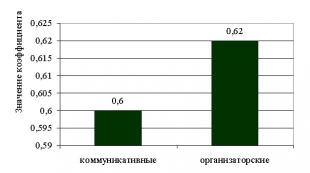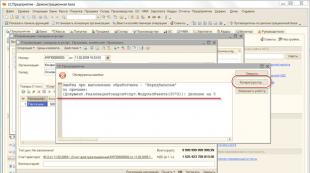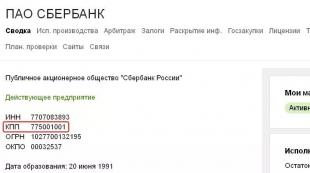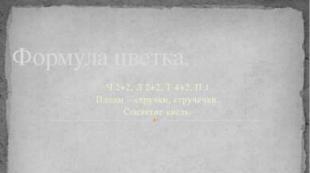Extract from the register of securities owners. Is an extract from the register of shareholders a security or an information document? How much does the procedure cost?
1. The activities of maintaining the register of securities owners are the collection, recording, processing, storage of data constituting the register of securities owners, and the provision of information from the register of securities owners.
Only legal entities have the right to maintain the register of securities owners.
The person carrying out the activities of maintaining the register is called the register holder. The holder of the register, on behalf of the issuer or the person obligated for securities, may be a professional participant in the securities market who has a license to carry out activities related to maintaining the register (hereinafter referred to as the registrar), or in cases provided for by federal laws, another professional participant in the securities market.
(see text in the previous edition)
The registrar does not have the right to carry out transactions with the securities of the issuer, the register of owners of which it maintains.
(see text in the previous edition)
The register of securities owners (hereinafter also referred to as the register) is a system of records formed at a certain point in time about persons for whom personal accounts have been opened (hereinafter referred to as registered persons), records about securities accounted for in these accounts, records about the encumbrance of securities and other records in accordance with the legislation of the Russian Federation.
(see text in the previous edition)
The register holder carries out its activities in accordance with federal laws, regulations of the Bank of Russia, as well as the rules for maintaining the register, which the register holder must approve. The requirements for these rules are established by the Bank of Russia.
(see text in the previous edition)
There is no register for bearer securities.
(see text in the previous edition)
(see text in the previous edition)
Registered persons are required to comply with the requirements for providing information and documents to the registry holder as provided for in the rules of maintaining the register.
(see text in the previous edition)
(see text in the previous edition)
The agreement for maintaining the register is concluded with only one legal entity. The register holder may maintain registers of owners of securities of an unlimited number of issuers or persons liable for securities.
(see text in the previous edition)
The holder of the register of owners of securities intended for qualified investors has the right to credit the specified securities to the owner’s personal account only if he is a qualified investor by virtue of federal law or is not a qualified investor, but acquired the specified securities as a result of universal legal succession, conversion, including during reorganization, distribution of property of a liquidated legal entity and in other cases established by the Bank of Russia.
(see text in the previous edition)
(see text in the previous edition)
3. The responsibilities of the register holder include:
1) open and maintain personal and other accounts in accordance with the requirements of this Federal Law and regulations of the Bank of Russia;
2) provide a registered person whose personal account accounts for more than one percent of the issuer’s voting shares with information from the register about the name of the registered persons and the number of shares of each category (each type) recorded in their personal accounts;
3) inform registered persons, upon their request, about the rights secured by securities, the methods and procedure for exercising these rights;
5) immediately publish information about the loss of records certifying rights to securities in the media in which information about bankruptcy is subject to publication, and apply to the court with an application to restore records of rights to securities in the manner established by the procedural legislation of the Russian Federation Federations;
6) fulfill other duties provided for by this Federal Law, other federal laws and regulations of the Bank of Russia adopted in accordance with them.
(see text in the previous edition)
3.1. The register holder carries out operations related to the placement, issue or conversion of securities based on the order of the issuer of securities (the person obligated for the securities), unless otherwise provided by federal laws and regulations of the Bank of Russia.
3.2. Requirements for the content of orders of registered persons, the issuer (person obligated for securities) to conduct transactions on a personal account are established by the Bank of Russia. The holder of the register does not have the right to present additional requirements when conducting transactions on a personal account, in addition to the requirements established by this Federal Law and regulations of the Bank of Russia.
3.3. The registry holder executes the order of the registered person to carry out a transaction on a personal account or refuses to carry out such an operation within three working days from the date of receipt of the said order, unless a different period is provided for by federal laws and regulations of the Bank of Russia.
3.4. Refusal or evasion of conducting a transaction on a personal account is not permitted, except in cases provided for by federal laws and regulations of the Bank of Russia.
3.5. The holder of the register, at the request of a registered person, is obliged to provide an extract from the register on his personal account within three working days from the date of receipt of such a request. An extract from the register must contain the information established by regulations of the Bank of Russia as of the date specified in this extract.
3.6. The remuneration of the register holder for compiling a list of persons exercising rights under securities should not exceed the costs of compiling it. The amount of remuneration of the register holder for compiling a list of securities holders is determined by the agreement of the register holder with the issuer (the person obligated for the securities).
3.7. The registry holder has the right to charge registered persons a fee for conducting transactions on personal accounts and for providing information from the registry. The register holder does not have the right to charge a fee in the form of a percentage of the value of the securities in respect of which a transaction is carried out on a personal account. The maximum fee charged by the register holder from registered persons for conducting transactions on personal accounts and for providing information from the register, and (or) the procedure for determining it are established by the Bank of Russia.
When placing securities, an extract from the register is provided to the owner of the securities free of charge.
3.8. The issuer has the right to perform part of the functions of the registrar provided for in paragraph 4 of Article 8.1 of this Federal Law for securities placed by the issuer, if this is provided for in the agreement to maintain the register. In this case, the issuer is obliged to comply with the requirements of paragraph 5 of Article 8.1 of this Federal Law. In this case, the period for carrying out (refusal to carry out) a transaction on a personal account begins from the date the issuer receives documents for carrying out a transaction on a personal account, except for cases established by regulations of the Bank of Russia.
3.9. The holder of the register is responsible for the completeness and accuracy of the information provided from the register, including that contained in the extract from the register on the personal account of the registered person. The registry holder is not liable if information from the registry is provided by the previous registry holder during the period of maintenance of the registry, if such information corresponds to the data received from the previous registry holder when transferring the said register.
3.10. The register holder shall compensate the owners of securities and other persons who, in accordance with federal laws, exercise rights under securities, for losses caused by unlawful actions (inaction) of the register holder.
The issuer (the person obligated for securities) and the register holder are jointly and severally liable for losses caused as a result of violation of the procedure for recording rights, the procedure for performing transactions on accounts (the procedure for maintaining the register), loss of accounting data, provision of incomplete or unreliable information from the register, if will not prove that the violation occurred due to force majeure.
A debtor who has fulfilled a joint and several obligation has the right to reclaim (recourse) against another debtor in the amount of half the amount of the compensated losses, unless otherwise provided by this paragraph. The conditions for the exercise of this right (including the amount of the reverse claim (recourse)) may be determined by an agreement between the issuer of securities or the person obligated under the securities and the holder of the register. The terms of the agreement establishing the procedure for distributing responsibility or releasing one of the parties to such an agreement from liability in the event of damages caused by the fault of at least one of the parties, they are void. If only one of the joint debtors is at fault, the guilty debtor does not have the right of recourse (recourse) against the innocent debtor, and the innocent debtor has the right of recourse (recourse) against the guilty debtor. the amount of the entire amount of compensated losses. If both joint and several debtors are at fault, the amount of the inverse claim (recourse) is determined depending on the degree of guilt of each joint debtor, and if it is impossible to determine the degree of guilt of each of them, the amount of the inverse claim (recourse) is half the amount of the compensated losses.
The legislation fully regulates aspects related to the register of shareholders. Special registrars receive the right to compile and store it. The register can also be stored directly at the enterprise.
What is an extract from the register of shareholders
Since 2002, it has been impossible to obtain any other evidence of ownership of securities except by finding the proper entry in the cadastre of the company's owners. Therefore, it is very important for interested parties to be familiar with the procedure for obtaining shares from the register of shareholders. The register of shareholders contains a certain base of information about the company. This is the only document of its kind in which you can find all the information about shareholders in a joint stock company.
In it you can find the following information:
- the number of funds in the authorized capital;
- preliminary price of shares, their total number;
- number of shares in circulation;
- information about persons who are shareholders;
- information about dividends that have already been paid;
- data from the document confirming the purchase of shares.
A fictitious or actual holder of shares, but the joint stock company must open a personal account for each of them. In order to hold securities, you must have the consent of the other owners.
Information about shareholders is stored in cadastral records. They can be compiled both in paper form and electronically.
An extract from the register of shareholders is a bit reminiscent, but it also has significant differences. Among its main features:
- must be issued only upon request on a specific date (dating it earlier is unacceptable);
- it must contain accurate information about the holder of shares and their exact number;
- The law allows no more than three days to prepare an extract.
The document is for informational purposes only. The fact that the statement was made does not need to be indicated on the shareholder’s personal account. There is also no need to make any entries in the log book.
The company employee who works with the register does not keep a copy of the extract. The document itself cannot be the basis for obtaining ownership of securities, but is purely informational in nature.
The request for an extract must be entered in the incoming correspondence book. There should also be a note indicating that the extract was issued. The record must contain the originating number and the full name of the employee who made the statement.
The state requires mandatory indication of the method of providing information about shareholders. This information must be indicated in the application form for issuing the document.
The owner of shares receives free access to the following information:
- what part of it is in the authorized capital;
- what entries are in his personal account;
- information about the joint-stock company, its founders, the size of the authorized capital;
- registrar information.
If any transactions were carried out on the personal account of a shareholder during a certain period of time (day), then the shareholder must receive full information about this.
Procedure for obtaining a document
The holder of the cadastre has the obligation to issue extracts from the register of shareholders, if the holder of the securities himself is authorized to do so. He bears full responsibility for the information he presents in the document, its accuracy and completeness.
The procedure for obtaining an extract takes place according to the following points:

The request must be made in writing. The registrar must obtain all information about the person who made the request.
To issue an extract from the register, the registrar must receive an order from the shareholder himself. This can be done in several ways:
- in person;
- via mail;
- through a trusted person.
The document must meet the following requirements:
- be filled out in full and legibly;
- no errors or corrections may be made in the document;
a personal signature must be present; - the applicant’s personal data must be indicated;
- you need to indicate from what type of personal account you want to make an extract (nominee, owner, trustee or pledgee).
After receiving this document, the registrar must compare the signature on the application with the one he has on the documents. For further identification, he may ask for the following papers:
- passport of a citizen of the Russian Federation;
- ID card if the applicant is a citizen of the Russian Federation but lives abroad;
- military ID;
- for a foreigner - a visa and a foreign passport;
- ID card for a person who does not have citizenship.
Any security holder can obtain data from the register of shareholders. This does not depend on the number of shares he owns (the minimum allowed is 1 percent).
The following data may be available to him:
- names of security holders;
- the number of shares they own;
- type of securities;
- price.
If the applicant is the pledgee, then he can obtain information only about those securities that are pledged.
If a third party needs to receive an extract, then it is necessary to issue a power of attorney for him.
The law allows the registrar no more than 3 days to provide an extract from the register. If he does not make it in time, he must send a refusal to the applicant before the end of the specified period. It must indicate valid reasons for the refusal and the procedure for eliminating them.
When you first receive a statement, you will need to pay the funds. The registrar will need to pay for the work for all subsequent requests. If the document is issued at the enterprise itself, then you will not need to pay for it.
Format of an extract from the register of shareholders
An extract from the register includes the following data:
- name of the company that issues securities;
- the address at which the joint stock company is registered;
- the name of the body that gave permission for the company to operate, the number and date of registration of the company;
- personal account number according to the cadastre;
- surname, name, patronymic of the registered person;
- date of issue of the statement;
- all data on securities owned by the shareholder;
- registrar name;
- which government agency issued permission for the registrar to operate;
- data about the registrar (address, contact information);
- text stating that the extract has no legal force and is issued for informational purposes only.

The registrar must certify the document.
What is this information for and where is it needed? We'll tell you about it.
Regulations and deadlines
There are no specific legal restrictions on the number of statements that a shareholder can receive. Only he can decide how many requests he can use and for what purposes. The registrar has no legal right to refuse to issue a document. This item is regulated by Federal Law No. 208.
The maximum legislation allows the registrar to prepare a document is five working days.
In addition to the shareholder himself, data from the register can be obtained by law enforcement officers, court employees, mortgage holders, as well as other citizens, a full list of which is given in Federal Law No. 208. Receipt of an extract by third parties does not pose any threat to the security holder, since the document itself has no value. But it contains important information that, by law, must be in the clear to ensure the reliability of relations between shareholders.
A document such as an extract from the register of shareholders has no legal force and cannot be used to obtain the right to own securities. But its practical value is that it contains all the information about shareholders.
If the register is stored at the enterprise itself, then strict rules for its maintenance must be introduced there. Often access to internal document flow is tightly controlled.
In contact with
Since 2002, when at the legislative level shares ceased to be registered in the form of a special document, it has become possible to confirm ownership of these securities only by accessing information from specialized databases - registers of share owners. The response to a request for such information is formed in the form of an extract from the register of shareholders.
This article will tell you in detail about the preparation, form, validity period of an extract from the register of shareholders, forming a request for its receipt and other important points.
What is an extract from the register of shareholders
Concept and features
A share is a special type of security that certifies the right of its owner to take part in the management of a joint-stock company by voting at general meetings of shareholders. All shares issued or placed by a legal entity during primary or additional issues are subject to registration in a special set of data - the register of shareholders. The authority to maintain this register rests with the enterprise itself, or with a specialized professional registrar who has a permit (license) for this type of activity.
Any information contained in the register can be obtained by the shareholder, and in some cases by other persons, in the form of an extract. In practice, only enterprises with a small number of shareholders independently maintain such a collection of data.
Purpose of issuance
The purpose of obtaining an extract form is not only to confirm the presence of securities in the applicant’s personal account. This minimum information can be obtained in the form of a certificate of the number of shares.
Unlike a certificate, an extract confirms ownership of part of the securities of a joint-stock company as of the date the document was drawn up and can be used for the following purposes:
- submission of information to the bank to obtain a loan (shares can be used as collateral or used as confirmation of the shareholder’s property status);
- to formalize a potential transaction for the alienation of shares;
- to perform notarial acts.
In addition, an extract from the register allows you to find out the percentage of the applicant’s securities to the total number of shares of the enterprise. This is necessary to establish the right to request information regarding other shareholders (to exercise such a right, you must have at least 1% of the company's shares).
The rights and obligations of a joint stock company, registrar and owner of securities are regulated by Federal Law No. 208-FZ. To find out to whom to send a request for an extract, a shareholder can check this information with the issuing company, or obtain.
Read below about where to get and how to obtain (order) an extract from the register of shareholders.
Procedure for obtaining a document
Procedure
The procedure for providing an extract from the register of shareholders can be presented in the form of step-by-step instructions:
- determine the need to request a document;
- identify the holder of the securities register (the enterprise itself or the registrar - registrar) by studying information from the Unified State Register of Legal Entities;
- pay the cost of obtaining an extract from the registrar (the company that maintains the register itself is obliged to issue extracts free of charge);
- send a request to the registry holder;
- receive an extract within the established time frame.
The request must be made in writing, and the applicant must confirm his or her identity to the database holder. The content of the request, in addition to information about the applicant, must indicate the type of personal account of the shareholder.
Statement format
An extract from the register is drawn up in the form of a written document, certified by the seal and signature of the registrar, or similarly certified by the heads of the organization. The information included in the extract form includes:
- complete information about the issuer that issued the shares;
- information about the security holder;
- complete information about the registry holder;
- comprehensive information about the type and quantity of securities;
- the current date as of which the statement was generated;
- other data.
An extract from the register of shareholders (closed joint stock company) is available for.
Extract from the register of shareholders of the CJSC (filling sample)

Extract from the register of shareholders - 1

Extract from the register of shareholders - 2
An extract from the list of LLC participants (register of shareholders) is also available for.

Regulations and deadlines
The legislation does not contain restrictions on the number of requested statements; only the shareholder himself determines the need to complete the request. The registrar does not have the right to evade issuing this document; such an obligation is provided for in Federal Law No. 208-FZ.
The maximum period for providing an extract cannot exceed five working days from the date of receipt of the request. If the data collection is maintained by a professional registrar, obtaining an extract will be carried out on a paid basis (with the exception of an extract for the initial placement of securities, it is issued free of charge). In any case, enterprises do not have the right to charge a fee for the preparation of such documents.
Subjects
In addition to the owner of the securities, information from the register can be obtained by judicial or law enforcement agencies, the pledge holder, as well as other persons specified in Federal Law No. 208-FZ. This fact does not pose any risks for the shareholder, since the extract has no legal force and cannot be used as an official document.
Since 2002, the only evidence of the granted right to own shares in the company is the corresponding entry in the cadastre of owners.
Dear readers! The article talks about typical ways to resolve legal issues, but each case is individual. If you want to know how solve exactly your problem- contact a consultant:
APPLICATIONS AND CALLS ARE ACCEPTED 24/7 and 7 days a week.
It's fast and FOR FREE!
Basic Aspects
For some time now, all shares issued for circulation in Russia do not require documentary evidence.
Information on the personal accounts of owners of valuable assets is the only proof of ownership. Previously, a certificate was also included.
You can check the presence of securities on the shareholder’s personal account, find out the details and quantity by contacting the responsible registrar.
This responsibility is assigned to the organization itself or entrusted to a professional registrar who carries out his activities on the basis of.
You can determine the organization that is responsible for recording data on shareholders by obtaining an extract from the general register of organizations. Or this information will be provided by the joint stock company itself.
What it is
The register of shareholders is a bank of information on the enterprise. This is the only document containing the rights and obligations of all participants.
It contains the following data about the company (Article 44 of the Federal Law No. 208-FZ dated December 26, 1995):
- size of the authorized capital;
- par value and number of shares;
- how many securities are in circulation;
- information on owners and nominal holders of shares;
- the price of securities purchased at the expense of reserves;
- data on dividends paid;
- details of documents that confirm completed transactions.
The joint stock company opens a personal account in the list for each fictitious and current shareholder.
To carry out actions with securities, make changes and additions, issue information on shares, it is necessary to obtain the signature of the co-owner.


Cadastral records are maintained in paper or electronic form. The first version is considered the original, signed by the chief accountant and the chairman of the board of directors, and certified by a seal.
An extract from the register differs significantly from a certificate. Features of the extract:
The operation of providing documentation is of an informational nature. Its completion is not reflected in the holder’s personal account and does not require an entry in the registration journal.
The registrar does not retain a copy of the issued document. The extract is of no value and cannot be used to obtain ownership of the shares indicated in it.
The receipt of a request for information is recorded in a special book for processing incoming correspondence.
There is also a note about the issued extract, the date and purpose of the transaction. The entry is assigned an outgoing number and the name of the responsible person is indicated.
The registered person in the application form indicates the method of providing information. Which is a mandatory requirement of the state.
The shareholder has free access to the following data:
- The size of your own share in the authorized capital.
- Entries made on a personal account.
- Information about the issuer, its founders, initial capital.
- Information about the registrar.
If there was movement on the personal account during the day, the owner receives a notification that
provides complete information about the operation performed.
Purpose of the document
The register of securities is maintained with the aim of collecting all information about the activities of the enterprise and its owners in one document.
It allows you to quickly obtain information about the financial condition of a society, which can be used to improve the situation of society.
The extract contains information about one owner (applicant) and his shares. Issued at the written request of the security holder. The document has no legal force.
Current standards
The state regulates the registration, accounting and issuance of JSC securities and information on them.
For this purpose, the following laws have been adopted:
Procedure for document execution
The responsibilities of the cadastre holder include issuing an extract of the shareholder’s personal account based on his order.
The company specialist bears full responsibility for the accuracy and completeness of the information contained in the document. An extract from the register usually contains the following information:
- Full name of the organization that issued the securities.
- Place of registration of the joint-stock company.
- The name of the authorized body that issued the documents for conducting the activity, the date and number of registration.
- Cadastral number of the personal account of the owner of the shares.
- Full name of the registered person.
- What date is the statement issued?
- Information on securities that are on the owner’s personal account (category, type, quantity, federal number).
- View of the owner of the documentation.
- Full name of the registrar.
- The name of the government agency that issued the permit to engage in this type of activity.
- Legal address and contact details of the registrar.
- A reminder that the extract has no legal force and is of no value.
The document is certified by the registrar. If the securities are the subject of collateral, the contents of the statement will change.
The court has the right to receive a document with other data:
Where can I get it?
A representative of the joint stock company will provide comprehensive information about who is entrusted with maintaining the cadastre of securities holders and where to obtain an extract from the register of shareholders.
You can also find the necessary information on the Internet or from an extract from the Unified Federal Register of Legal Entities. persons The procedure for applying for a certificate from the register is the same in any case.
It does not matter whether the company itself or a third party is responsible for the safety of information on shareholders. The only difference is that the registrar's services must be paid.
How to order a form
To receive a form with information on the owner’s securities, a written order is submitted to the registrar (Article 8 of Federal Law No. 39-FZ of April 22, 1996).
It is provided by one of the following methods:
- personally;
- via postal service;
- through a trusted person.
Requirements for the document:
- Legible and completely filled out.
- Blots, errors, and corrections are not allowed.
- A personal signature of the registered person is required.
- Indication of the applicant's full name. ID card data for individuals. persons, from the registration certificate (applies to legal associations).
- Description of the account type (nominee, pledgee, owner, trustee).
He can find out:
- names of owners;
- the type, quantity, and stated value of the shares they own.
The pledgee has the right to receive information only on the pledged securities. Installed.
The need for a power of attorney to receive
If the receipt of the extract is provided to a third party, a notary is required.
The document contains information that will help identify the recipient and the principal.
Deadline for submitting an extract from the register of shareholders
The cadastral extract is provided no later than five working days from the date of receipt of the relevant order. In practice, the period does not exceed three days.
If the register holder is unable to fulfill the order within the specified period, a refusal notice is sent to the owner of the shares within three days.
The document indicates the legitimate reasons for the refusal and the planned actions to eliminate them.
How much does the procedure cost?
During the initial placement of valuable assets, an excerpt from the cadastre is provided to the owner of the securities free of charge, since there are no grounds for payment.
Upon repeated request, the shareholder pays for the services of the third-party registrar. If the registration of shares is carried out at the enterprise itself, the procedure is free.
Sample filling
Extracts from the cadastre are similar in completion; the only differences are in the indication of the type of registered person.
Here is an example of what the statement looks like:

Questions that arise
Joint-stock companies can be open or closed, differ in the type of business activity, and can also be non-profit.
Each has its own nuances of maintaining a register of securities holders and issuing extracts from them.
Nuances for a garage-building cooperative
Most often, the question of obtaining an extract from the owners of a garage cooperative arises in the event of the death of the testator. The document is issued at the place of registration of the garage by the district PIB.
Procedure for obtaining an extract from the general register of shareholders:
| Visiting a medical facility | The practicing doctor will issue a paper of the established form, which will document the fact of death. |
| Contacting the registry office | The authorized authority at the place of last registration of the deceased will register his death and issue a corresponding certificate with the date of death. This will become the basis for entering into inheritance rights |
| Visit to the passport office at your registration address | The specialist will remove the deceased citizen from the registration register. To complete the transaction, you will need to provide a death certificate and identification. The process may take up to a week. Also, the passport office has the right to issue documentation with information about the last registration of the deceased person. Papers will be needed to register an inheritance |
| Find documents | Which confirm the right of inheritance |
| Visit a notary to open an inheritance case | He is obliged to check all the data in the provided papers and the technical characteristics of the inherited objects. The notary will issue a certificate showing entry into the inheritance () |
| Contact the Office of the Federal Registration Inspectorate for SBO | It will provide a securities statement and register the new owner of the apartment or garage |
What is the validity period of the document
The question of the period of validity of the statement disappears by itself, since the document is provided for a specific date. The legislation does not establish an expiration date for a certificate of the presence of valuable assets in a shareholder’s personal account.
Features in JSC
According to Art. 44 Federal Law dated
12/26/1995 N 208-FZ “On Joint-Stock Companies” (hereinafter referred to as Law N
208-FZ) the register of shareholders of the company contains information about each
registered person, number and categories (types) of shares recorded on
the name of each registered person, other information required by law
acts of the Russian Federation.
The company is obliged to ensure the maintenance and
storage of the register of shareholders of the company in accordance with legal acts
Russian Federation from the moment of state registration of the company.
Holder of the register of shareholders of the company
it could be a society or a registrar.
From October 1, 2014, joint stock
companies will not be able to independently maintain registers of their shareholders. Point to this
The President of the Russian Federation raised the issue by signing Law No. 142-FZ “On
introducing amendments to subsection 3 of section 1 of part one of the Civil Code of the Russian Federation.”
From October 1, 2014, companies are obliged
will transfer this function to professional participants in the securities market -
registrars. For joint stock companies created after October 1, 2013
year, the ban on independent maintenance of the register of shareholders comes into force
from October 01, 2013.
Today the Russian registration
the community is represented by 39 companies (according to the Federal Financial Markets Service as of 08/30/13). Their
the number decreases every year, and in the future, according to experts
stock market, as well as its participants themselves, the market for registration services
will be provided by a dozen companies with appropriate licenses.
Joint-stock companies that on the day
entry into force of Federal Law N 142-FZ in accordance with paragraph 3 of Art. 44
Law N 208-FZ were the holders of registers of shareholders of these companies, retain
the right to maintain said registers for a year after the date of entry into force
Federal Law N 142-FZ. One year after the date of entry into force
Federal Law No. 142-FZ, the specified joint-stock companies are required to transfer
maintaining a register for a person who has a license provided for by law (clause 5 of article 3
Federal Law N 142-FZ).
Respectively,
maintaining records of rights to uncertificated securities will become
carried out by a person who has a license provided for by law.
In today's reality,
The director of a joint stock company is personally responsible for
safety, completeness and reliability of register information. Independent
maintaining a register of company shareholders, on the one hand, allows you to quickly
respond to changes in shareholders, feel more confident
in the safety of the register (since it is, as they say, “in your own hands”, and not
secret that taking over the registry is one of the priority tasks when
raider takeovers) and, finally, significantly save money on attracting
third party registrar. However, on the other hand, independent management
register provokes a number of violations and abuses by
management of the society.
These may be violations due to
insufficient knowledge of legislation regulating this area
activities, which leads to millions in fines for the organization, and deliberate
abuse.
The legislative amendments described above
are designed to, if not eliminate, then at least minimize the negative
aspects of independent maintenance of the company register. It remains to be assumed that
the obligation of joint stock companies to transfer the maintenance of the register to organizations and
persons who have the appropriate license to carry out this type of
activities will have a positive impact on the economic activities of companies in
Russian Federation as a whole. This will make it possible to better protect registries
joint stock companies from the possibility of forgery, loss of documents, access to
documents of the register of unauthorized persons, as well as to exclude violations of the regulations
on maintaining the register and removing the rights and interests of shareholders from threat.
This requirement applies to all
joint stock companies, regardless of the number of their shareholders.
If society continues to be independent
maintaining the register of shareholders after October 1, 2014 or not in a timely manner
will transfer the register to a licensed registrar, measures may be taken
responsibilities:
according to Part 2 of Art. 15.22 Code of Administrative Offenses of the Russian Federation illegal
maintaining a register of owners of securities by their issuer, as well as in case of replacement
person maintaining the register of securities owners, evasion of such
persons from transferring information, data and documents received from the issuer,
components of the system for maintaining the register of securities owners, or violation
provided for by federal laws and other laws adopted in accordance with them
regulatory legal acts of the procedure and timing of their transfer entail the imposition
administrative fine for legal entities - from seven hundred thousand to one
million rubles.
according to Art. 15.20 Code of Administrative Offenses of the Russian Federation obstruction
issuer, joint-stock investment fund, management company
joint-stock investment fund, mutual investment fund or
non-state pension fund or the person maintaining the register
owners of securities, exercise of rights certified by securities,
except for the cases provided for in parts 1, 2, 4, 5, 8 and 10 of the article
15.23.1 of this Code shall entail the imposition of an administrative fine on
legal entities - from five hundred thousand to seven hundred thousand rubles.
according to Art. 185.2 of the Criminal Code of the Russian Federation for
violation of the established procedure for recording rights to securities will entail damage
major damage to citizens, organizations or the state.
Regulations on the procedure for interaction when
transfer of documents and information constituting the registry system
owners of securities, approved by order of the Federal Financial Markets Service dated December 23, 2010 No. 10-77/pz-n,
establishes a list of mandatory documents, without which the register cannot
be accepted by the registrar (clause 1.3 of the said provision).
As practice shows, not all
companies that maintain a register of shareholders independently have a full set of
documents required to transfer the register of shareholders to a licensed
to the registrar.
We recommend
prepare in advance the documents and information necessary for transfer
register of shareholders to a licensed registrar, and carry out all procedures required
to conclude an agreement with the registrar.









